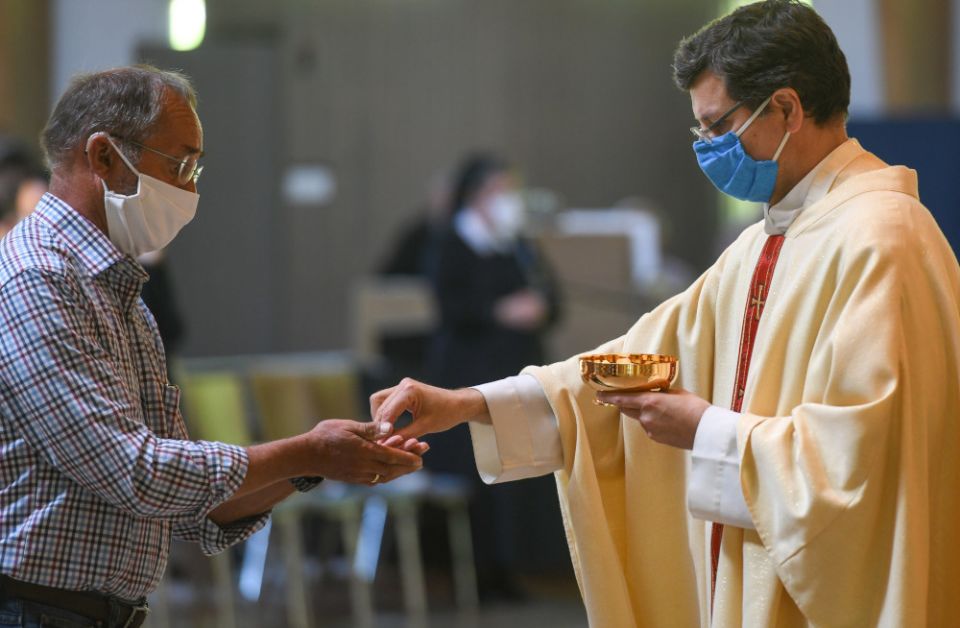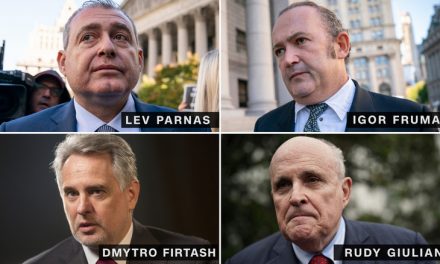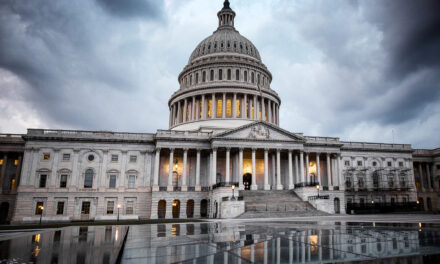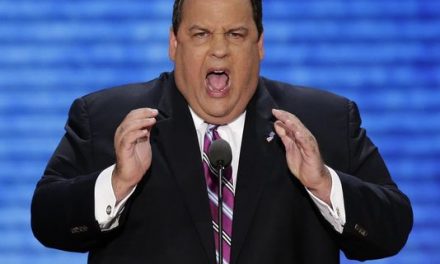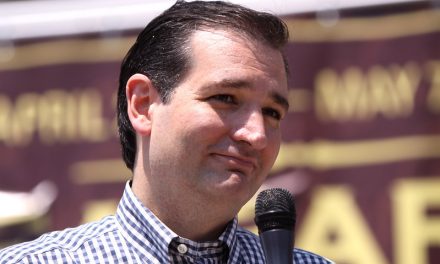Image Credits: CNS/KNA/Harald Oppitz.
A couple of decades ago, I was the Best Man in a large Catholic wedding. I can’t remember all the details, but at one point in the pre-ceremony proceedings, I was asked to attend Mass. It was a fairly conservative Church, and since there were a lot of out-of-towners and guests, it was explained that communion was not for everyone. If you weren’t Catholic or weren’t in good standing, for example you hadn’t gone to confession recently, you were not supposed to participate in communion. This put me in an awkward situation.
I was raised in the Episcopalian Church, which does have communion, so I was familiar with the rite and would have had no trouble acting appropriately. But obviously I wasn’t a Catholic, and in my personal beliefs, I wasn’t even a trinitarian. I was pretty clearly being instructed to stay in my pew.
The groom was a college buddy of mine, but the wedding was in his home town. This was the first time I was meeting much of his family and the vast majority of the guests, and they seemed to be overwhelmingly Catholic. I hadn’t traveled halfway across the country to create controversy. I was there to support my friend and help make his wedding a smooth and happy occasion.
It seemed to me that the best way to fulfill my role was to ignore the priest’s admonition and just quietly go ahead and receive the host. Interestingly, after twenty years, I’m not 100 percent sure what I wound up doing. I have fuzzy memories both of taking communion that day and not taking communion. I do have a clear memory that one of the groom’s brothers, an irregular church attendee, quickly slipped off to do confession so he’d be in compliance.
I think the reason I can recall this incident at all is because I felt like the priest had violated the spirit of the moment by introducing this tension. I thought about this later on, when I saw that Pope Francis had said that “Communion is not a prize for the perfect. … Communion is a gift, the presence of Jesus and his Church.” He was arguing that communion should not be denied for political reasons, for example, a congregant’s position on abortion rights.
I don’t make it my practice to have strong opinions on how the Catholic religion goes about its business, but I welcomed Pope Francis’s perspective based on my own limited experience from the wedding.
In the intervening two decades, one in five American Catholics have left the church. Presumably, the majority of them left due to discomfort with the sexual abuse scandals. Some, however, must have left for other reasons, including the way communion is treated by some of the more conservative priests and bishops. That, of course, is none of my business or concern. But it’s interesting that conservatives within the Church won’t defer to Pope Francis’s guidance on the issue.
U.S. Roman Catholic Bishops this week are expected to revisit whether President Joe Biden’s support for abortion rights should disqualify him from receiving communion, an issue that has deepened rifts in the church since the Democrat took office.
At a Nov. 15-18 conference in Baltimore, the bishops are scheduled to vote on a document clarifying the meaning of Holy Communion, a sacrament central to the faith. A committee drafted the document after the bishops’ June conference, where they debated whether to take a position on the eligibility of prominent Catholics such as Biden – whose political actions they say contradict church teaching – to receive communion.
It’s my personal opinion that the primary reason Christianity has thrived in America even as it withered in Europe is that America has, from an early point, done a better job of keeping religion and politics separated. Most notably, the federal government has never been associated with any denomination. We’ve never had a federal religion, and it’s been a very long time since any of our states/colonies have had an official religion. When scandals hit a church, they remain self-contained rather than implicating the entire political Establishment, as happened in Ireland, for example, in the 1990’s. This winds up protecting both our state and religious institutions.
Now, some people may wish that Christianity wasn’t so vibrant and resilient in America, but that’s a different debate. My argument is that letting politics seep too much into religion is likely to harm rather than protect people’s faith. For this reason, I feel like these conservative U.S. bishops may be engaged in a self-defeating exercise. They’re worried that people like Joe Biden will lead their flock astray, but it’s possible that it’s their own intolerance that will have that effect by leading people out of the Church altogether.
Far better, in my humble opinion, to lean on their pastoral duties and go more lightly on the doctrinal enforcement.

